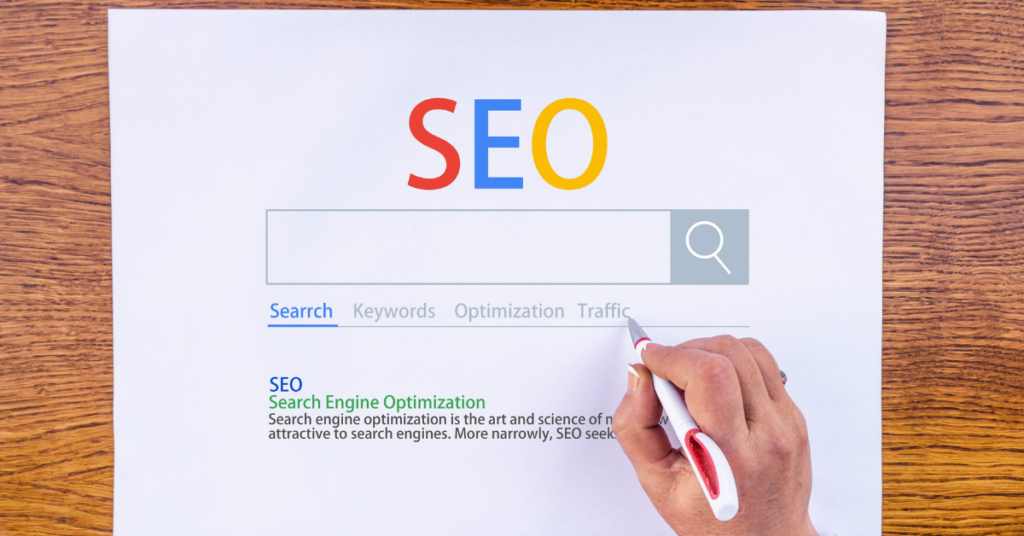By the end of 2025, the internet will likely contain 175 Zettabytes of information – an amount that, if stored on DVDs, would circle the earth 222 times! With the staggering amount of data being added to the internet every day, the importance of keeping your website optimized for search algorithms increases daily. Search engine optimization is now a necessity.
SEO and Search Algorithms
Search algorithms parse through the hundreds of billions of web pages out there, analyzing relevance and content quality. Factors such as the words included in a search query, the overall relevance and usability of pages, the expertise of sources, and the searcher’s location, are all considered by the algorithms used by search engines. The nature of your search query can impact the importance of each factor as well. For example, if your query is surrounding a current news topic, the date of publication on a result will be taken into account by search algorithms.
These algorithms are constantly evolving based on innovations and search quality testing results. In 2020, Google alone ran 383,605 search tests, 62,937 side-by-side experiments, and 17,523 live traffic experiments, resulting in 3,620 launched changes. Independent Search Quality Raters conduct search tests and side-by-side experiments. In these tests, raters use standardized quality surveys that measure the content’s expertise, authoritativeness, and trustworthiness. Live traffic experiments enable a proposed update to a small group of users and compare use metrics (time to click on a result, what people click on, etc.) to a control group. Although these test results do not directly impact a page’s ranking, they do affect changes to algorithms that ultimately influence individual page ranks.
Google vs. Bing
Although Google is by far the most used search engine, businesses should not entirely dismiss the importance of Bing. In 2019, bing controlled 36% of the US search market. Any device using Microsoft’s Cortana and Amazon’s Alexa defaults to Bing rankings, making Bing optimization necessary for voice search optimization. Bing is also the default search engine for anyone using Internet Explorer or Edge, making it more specific to user demographics. An example of potential users could be those over the age of 45, or those using search engines in a workplace setting, as some restrict the use of alternative browsers. Bing also partners with smaller search engines and influences results on sites like Yahoo, Duck Duck Go, AOL, and more.
How do Search Engines Determine Your Site’s SEO?
Is your page relevant?
Next, algorithms assess how relevant information on a webpage is to what you are looking for. At the most basic level, crawlers determine if your keywords are on a page and whether those keywords are present in headings or body text. However, the days of being able to keyword spam to rank for desired searches are over. Aggregated interaction data also assess the relevance of search results. Additionally, the keyword’s inclusion in various metadata (like image titles and alt tags, the page description, or the page title) will positively affect results. While both major search engines reward the use of multimedia, Bing does more so than Google. So if a page contains many keyword hits but fails to produce meaningful user interaction or other signals that the content is relevant, the average ranking of that page will suffer.
Does your page have quality content?
High quality content writing and creation is key to performing well in search engines. In addition to assessing the meaning of a query and the relevance of possible results, content quality is a significant factor in determining its rank. Associated backlinks – or sites that link back to your page, are one way to assess quality. However, employing blackhat tactics to fool quality checks is a sure way to incur a penalty. Avoid schemes like purchasing poor quality or spammy backlinks, invisible text on pages, or any tactic that attempts to increase search engine ranking without improving the quality of the user’s experience. Although Google denies that domain authority directly affects a page’s ranking, having a better domain authority score (measured through tools like Moz) correlates with the quality of content on a website, making this metric one to consider.
Is your page mobile-friendly?
For a search result to be helpful, it needs to be read promptly. Search algorithms consider whether a page is readable on various browsers, screen sizes, and devices and whether or not page load times are prohibitively long. Not only does usability affect your page rankings, but it also correlates positively with user engagement, making it a vital category to pay attention to.
Is your page at the right time and place to answer the question?
Search algorithms also consider a user’s location, past search history, and search settings. For example, if you are in Philadelphia and search for “football scores” on a day that the Eagles are playing, you will most likely see the current score of the Eagles game. The same query in Barcelona is much more likely to show the latest FC Barcelona game score. The same applies to “near me” searches, which are common queries for users looking for local business or event results.
5 Steps to Improve SEO Strategy in 2021
1. Page speed and usability affect SEO
According to a Google announcement from November 2020, an update in May 2021 will significantly increase the page experience signals in determining page rankings. Page experience signals are as following:
- Core Web Vitals – these metrics determine whether the page will provide a good user experience, focusing on load time, interactivity, and visual stability. You can see how your site is currently performing for free using Google’s PageSpeed Insights tool.
- Load Time: Largest Contentful Paint (LCP) – measures perceived load speed because it determines when the page’s main content has likely loaded. A good LCP is under 2.5 seconds.
- Interactivity: First Input Delay (FID) – measures how quickly your site can be interacted with, determining a page’s usability. A good FID is less than 100 milliseconds.
- Visual Stability: Cumulative Layout Shift (CLS) – measures how often pages experience a layout shift or when a visible element changes from its start position. A good CLS score is less than 0.1.
- Mobile-Friendly – as the name suggests, your site needs to be mobile-friendly. You can use Google’s free Mobile-Friendly Test to measure current performance.
- Safe browsing – pages should not contain any malicious or deceptive content. If you have access to Google Search Console, you can check your security issues report to see if you have any potential security issues.
- HTTPS – your domain should have a security certificate installed, and pages should be served through HTTPS.
- No intrusive interstitials – content on the page should be easily accessible to the user. Practices like having to dismiss a pop-up before interacting with the main page content are penalized.
If that all seems a little overwhelming, the experienced web design and development team at Forge Apollo is here to help you create or update a website for SEO performance.
2. Understand and use SEO basics.
More advanced tactics won’t matter if you haven’t done essential SEO leg work. Take a moment to assess whether or not you’re following these best practices:
- Break up long content with meaningful, keyword-rich header tags. This not only increases ranking potential but makes your content more scannable and therefore more engaging for users.
- Optimize meta descriptions. Meta descriptions appear below the title in search results, so they play a crucial role in whether or not a searcher chooses to click on your website. To increase ranking potential, make sure to include relevant keywords
- Don’t forget to use keywords in image/video titles and alt tags.
3. Create new content for users, not search engines.
Although including keywords in your text and metadata is important, search algorithms are getting increasingly adept at assessing whether or not content is valuable for site visitors. New content should be created with users in mind, and engagement metrics such as the average time spent on a page, pages per session, and average time per session should be considered.
One way to increase these engagement metrics is to create topic clusters and ensure relevant content is linked. Write multiple pieces of content around the same subject, and be sure that links exist in logical places. Wherever a reader may have a question, link a related article with the answers. For video content, be sure to include a transcript that utilizes internal links, and if possible, a video service like Vidyard that allows for measurable in-video calls to action.
User-centric content can also have another benefit: passive link acquisition. It won’t work for every industry, but if you’re fortunate enough to create content around subjects that bloggers and journalists are frequently searching for, you can score backlinks without employing an outreach strategy. Generally speaking, highly linkable content often takes the form of how-to articles, guides, definition lists, and data reports.
4. Use schema markup for SEO, especially on FAQ or how-to pages.
Schema markup is a structured data vocabulary that helps search engines determine what type of content they are crawling. Typical uses of schema markup include indicating if something is an article, recipe, or review, or is discussing an event, contains references to products, people, organizations, local or businesses. How-to and FAQ schemas can be hard to win but very rewarding when won, so be sure to include schema markup on all relevant pages.
5. Perform SEO and content audits frequently
An excellent annual practice is going through your top-performing content and auditing it for relevance, page performance, and keywords. Additionally, you should check to be sure that all internal links on highly-trafficked pages are still relevant. If new, relevant content exists, link to those highly-trafficked pages as well.
Improve Your SEO with an Expert Agency
With more and more people relying on the internet to research and connect with desired products and services, maintaining healthy SEO practices is imperative. For help with small business SEO and local SEO and getting your website up-to-snuff, contact the SEO experts at Forge Apollo today!








